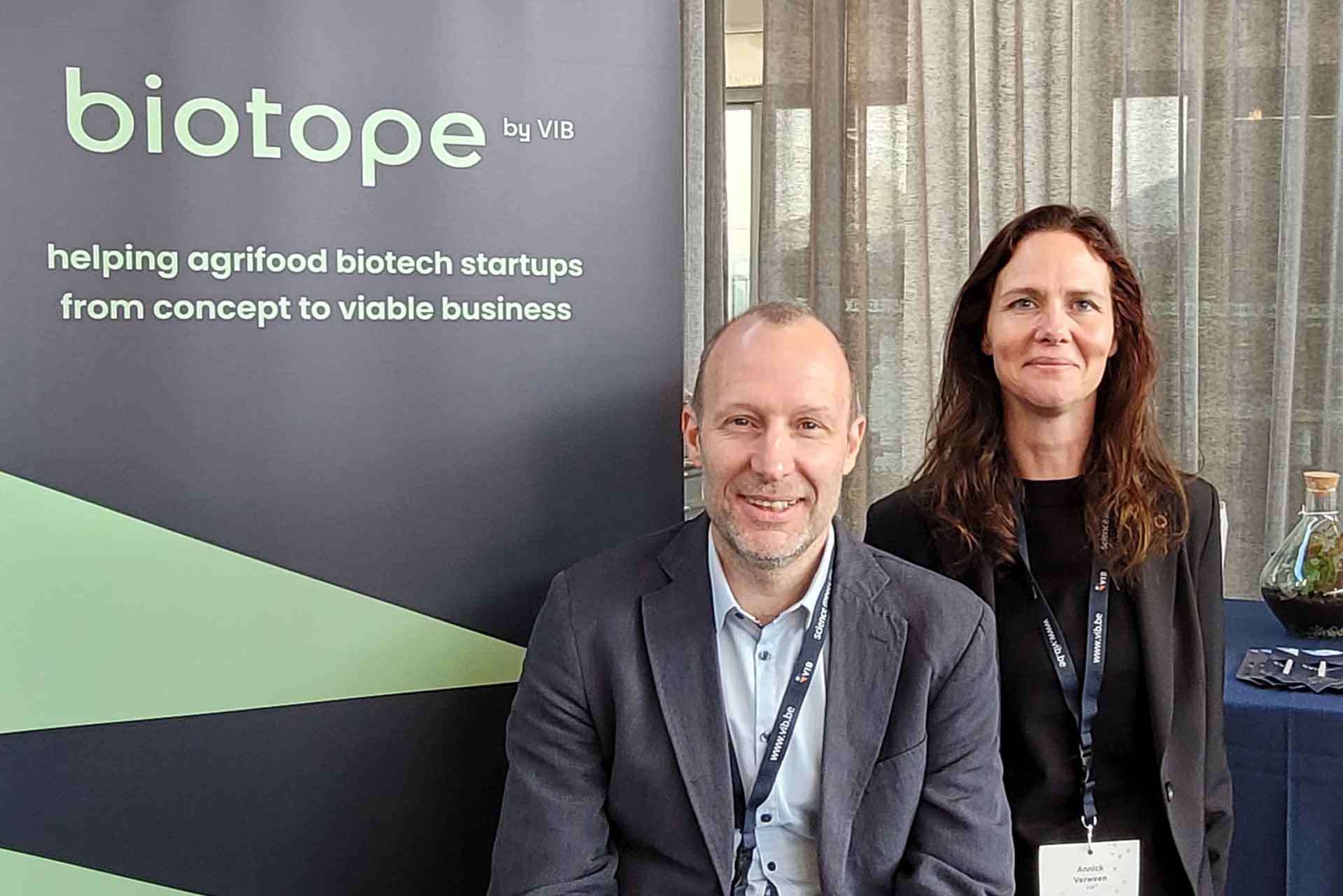An ecosystem in need of next-gen talent
biotope by VIB is located in Ghent, Belgium, in the heart of one of the world’s most dynamic and active agrifood regions. Flanders alone is home to many groups supporting agrifood research, including the VIB-UGent Center for Plant Systems Biology (PSB); the KU Leuven Plant Institute (LPI); and Flanders’ Institute for Agricultural, Fishery & Food Research (ILVO). To support further development, there are food labs like Proef! and Food Pilot, as well as the spearhead clusters flanders.bio and Flanders’ FOOD.
Flanders is also flush with potential partners for agrifood startups. The region houses over 23,000 agricultural businesses – including leading international corporations like BASF, Syngenta, Puratos, and Alpro – and employs over 48,000 people, generating over €38.4 billion in annual agricultural exports (source: FIT).
“At biotope, we aim to attract and empower the next generation of biotech entrepreneurs so they can go on to become the future leaders of this fabulous ecosystem.” – Annick Verween
“Although this region is world-renowned as a major hub for agrifood biotech innovation, we require a fresh influx of talent and new business ideas to keep up the growth and excellence,” says Annick Verween, biotope manager. “Belgium really lacks a supportive ecosystem for these agrifood entrepreneurs where they are nurtured already in this very early development phase. At biotope, we aim to attract and empower the next generation of biotech entrepreneurs so they can go on to become the future leaders of this fabulous ecosystem.”
Biotope is an initiative of VIB, one of the world’s premier life science institutes and the driving force behind the Flanders life sciences ecosystem. VIB’s internal venture program has resulted in numerous successful spin-offs, including MRM Health, Aphea.bio, Protealis, Biotalys, animab, and bar.on.
Read this article to find out more about VIB: the driving force behind a booming biotech ecosystem
“VIB has become one of the EU’s lead examples in translating academic research into science startups,” says Tony Montoye, biotope’s other manager. “VIB’s innovation and business team has been receiving requests from external startups for a long while and have felt frustrated that they didn’t have the right tools to push them forward. Now, with biotope, the institute can finally open its doors to non-VIB companies and provide them with the expertise and support which they’ve become famous for.”
Nurturing both people and projects
The incubator aims to help ambitious agrifood entrepreneurs turn their concept into a viable business. But what sets the biotope program apart is its strong focus on both the science and business, as well as developing the skills of the team members themselves.
“No science-based startup is ever the same,” Verween states, “so together with the startup we create a personalized journey for based on the unique strengths and challenges of their team. We only take on a small number of startups at a time so that biotope and our mentors and partners can work hands-on with each team in a continuous combination of tackling scientific as well as business challenges by learning, doing, and validating. We care about both the people and the projects.”
Biotope is open to international startups, from either academia or industry. The current focus is on science-based biotech innovations in agriculture, food, or nutrition with transformative potential in terms of sustainability, health, or food security.
“We really get excited by these incredible solutions to tricky problems – it’s a blast helping these teams take their biotech to the next level!” – Tony Montoye
“Brilliant ideas can come from anywhere, so we aim to include diverse teams from all over. Our first application process had qualitative startups from 22 different countries – European, African, Asian, and South American. Their innovations ranged from next-gen plant breeding and microbial fermentation, to upcycling plastic waste using an insect-based biorefinery. We really get excited by these incredible solutions to tricky problems – it’s a blast helping these teams take their biotech to the next level!”
Room to grow and support to succeed
Biotope’s final selection step runs a basecamp twice a year, where ten startups get a chance to rapidly develop and test their thinking on key aspects of their potential, with expert feedback and guidance. A few of the projects are then chosen to participate in the full 12-month incubator program, receiving €250,000 to help them achieve proof of concept for their innovation. The aim is for the companies to further develop their IP and technology and get ready for seed-stage funding by the end of the program.
“We really try to connect the startups with others in our network, both local and international.” – Tony Montoye
As biotope residents, companies get access to the cutting-edge research technology, equipment, and facilities of VIB, including greenhouses and a multipurpose co-working lab. The entrepreneurs are also introduced to VIB’s broad network of researchers, experts, corporate partners, and investors.
“We really try to connect the startups with others in our network, both local and international,” Montoye concludes. “The idea is to give these companies a solid starting base with support for their journey beyond the biotope program. I really believe that fostering entrepreneurs and their innovations helps to strengthen our ecosystem and create a brighter future for us all.”


